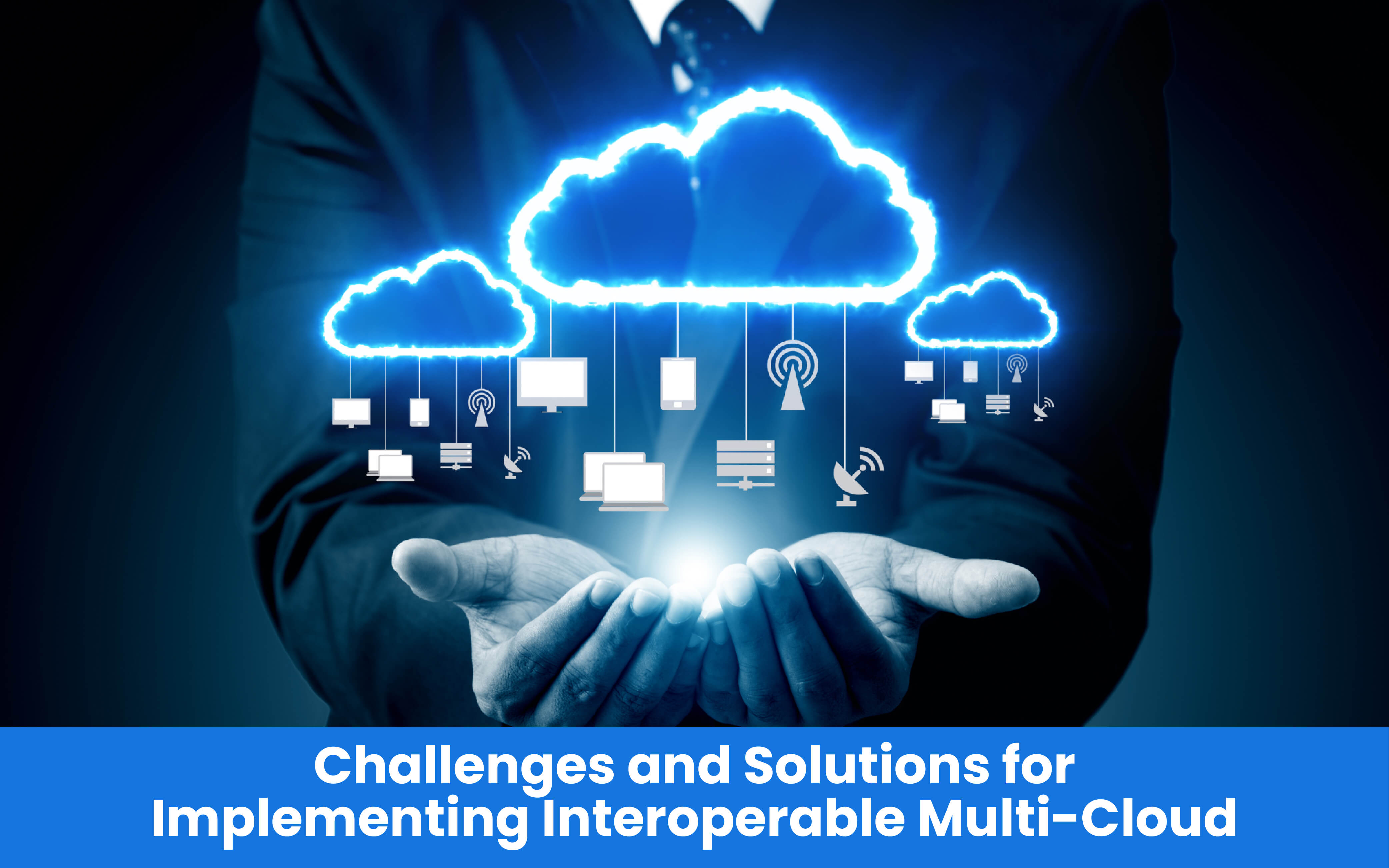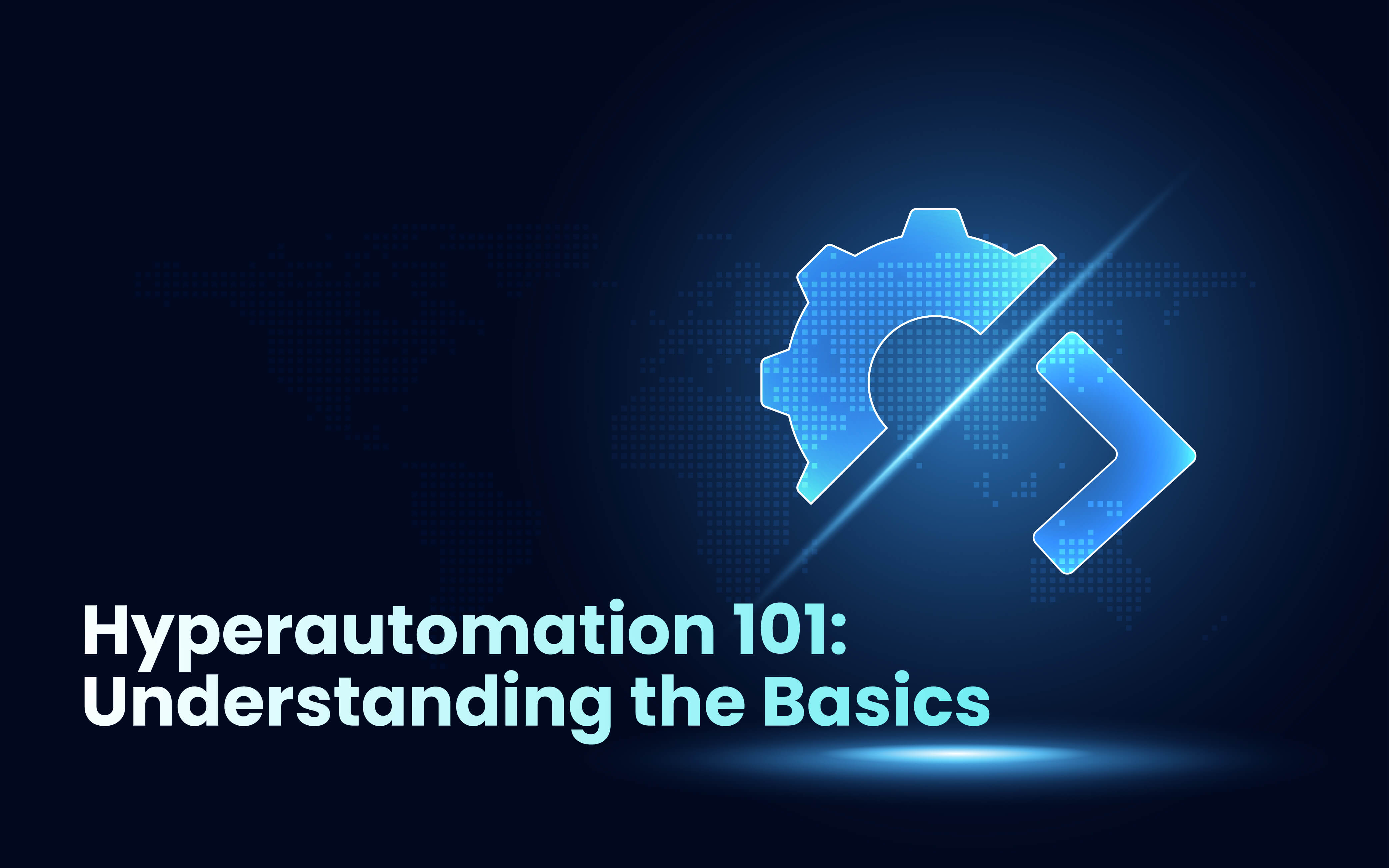Blogs
To know about all things Digitisation and Innovation read our blogs here.
Cloud and Infrstructure
Challenges and Solutions for Implementing Interoperable Multi-Cloud
SID Global Solutions
20 February 2023

As more and more businesses move their operations to the cloud, the need for a multi-cloud strategy has become increasingly important. Multi-cloud refers to the use of two or more cloud computing platforms, which can include public, private, and hybrid clouds. The benefits of a multi-cloud approach are numerous, including increased flexibility, improved resilience, and better disaster recovery options. However, implementing an interoperable multi-cloud solution is not without its challenges. In this guide, we will explore some of the challenges businesses face when implementing an interoperable multi-cloud solution, as well as potential solutions to these challenges.
Challenges of implementing Interoperable Multi-Cloud
Lack of standardization: One of the biggest challenges when it comes to implementing interoperable multi-cloud is the lack of standardization across different cloud providers. Each cloud provider has its own set of APIs, which can make it difficult for businesses to create a seamless experience across multiple clouds. This lack of standardization can result in compatibility issues, making it challenging to move data and applications between clouds.
Also Read: How Digital Transformation is Shaping the Future of Customer Experience?
Data security and privacy: Another challenge with multi-cloud implementation is ensuring the security and privacy of data. When using multiple clouds, there is an increased risk of data breaches or leaks, as data moves between clouds. Businesses must ensure that their data is protected and secure, regardless of the cloud it is stored in. This requires implementing robust security measures and ensuring compliance with various regulations.
Complexity: Multi-cloud environments are complex, and managing multiple clouds can be challenging. Businesses must ensure that their IT teams have the skills and expertise required to manage multiple clouds effectively. Additionally, managing multiple clouds can lead to increased operational costs, making it important to find ways to streamline operations and reduce costs where possible.
Vendor lock-in: Vendor lock-in can be a significant issue when implementing interoperable multi-cloud solutions. Some cloud providers offer services that are difficult to replicate elsewhere, making it difficult to move data and applications between clouds. This can result in businesses being locked into specific cloud providers, limiting their ability to move to other cloud providers or to take advantage of new services.
Solutions for implementing Interoperable Multi-Cloud
Standardization: To address the lack of standardization in cloud computing, businesses can use industry-standard APIs, such as OpenStack, which provide a consistent interface to multiple cloud providers. OpenStack is an open-source software platform that allows businesses to build and manage cloud infrastructure. It provides a unified API for multiple cloud providers, making it easier to move data and applications between clouds.
Security and privacy: To ensure the security and privacy of data, businesses must implement robust security measures and ensure compliance with various regulations, such as the General Data Protection Regulation (GDPR) and the Health Insurance Portability and Accountability Act (HIPAA). This can include using encryption to protect data, implementing access controls to limit access to data, and monitoring for unauthorized access or breaches.
Also Read: Why a Digital Mindset is Critical for Customer-Centric Digital Transformation
Simplification: To simplify the management of multiple clouds, businesses can use automation tools, such as cloud management platforms (CMPs), which provide a centralized view of multiple clouds. CMPs can help businesses manage their cloud resources more effectively, reducing the complexity of managing multiple clouds. Additionally, businesses can use containerization and orchestration tools, such as Docker and Kubernetes, to simplify the deployment and management of applications across multiple clouds.
Avoiding vendor lock-in: To avoid vendor lock-in, businesses can use cloud-agnostic services, which are services that are not tied to any specific cloud provider. These services can be used across multiple clouds, making it easier to move data and applications between clouds. Additionally, businesses can use open-source software, which provides greater flexibility and reduces the risk of being locked into specific cloud providers.
Conclusion
It is important for businesses to carefully evaluate their needs and goals before implementing an interoperable multi-cloud solution. They should consider factors such as security, compliance, scalability, and cost when selecting cloud providers and services. Additionally, businesses should ensure that they have the necessary expertise and resources to manage multiple clouds effectively.
Implementing an interoperable multi-cloud solution requires careful planning, implementation, and management. By addressing the challenges and using the solutions we’ve discussed in this guide, businesses can create a seamless, secure, and scalable multi-cloud environment that maximizes the benefits of cloud computing. With the right approach, businesses can take advantage of the flexibility and resilience of a multi-cloud approach while minimizing the risks and challenges associated with managing multiple clouds.
Also Read: How To Strengthen Cloud Security with Confidential Computing?
We at SIDGS help businesses to overcome the challenges of implementing interoperable multi-cloud solutions by providing a range of services and solutions that address the specific needs of each client. We at SIDGS, uses automation and orchestration tools to manage multiple clouds from a centralized platform, reducing the time and effort required to manage multiple clouds, we also takes a comprehensive approach to security and compliance, including encryption, access controls, and monitoring, as well as ongoing compliance assessments. Additionally, we provides expertise in managing data in a distributed environment, including data integration, data governance, and data quality management. By addressing these challenges and providing customized solutions for each client, SID Global Solutions helps businesses to create a seamless, secure, and scalable multi-cloud environment that maximizes the benefits of cloud computing.









